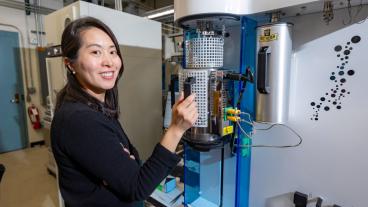A Golden start-up company working to bring to market patented technology developed by Colorado School of Mines researchers for the quick and accurate testing of bacterial infections recently received $275,000 in angel funding.
Traxion, a Golden-based venture catalyst whose strategic partners include the City of Golden and Mines, announced the successful completion of a $275,000 follow-on round of angel funding for Cobio Diagnostics, Inc. in March.
Cobio Diagnostics was incorporated in 2016, licensing a portfolio of Mines patents for the rapid detection of bacteria. The capital investment will be used to fund additional research and product development.
“We’re very pleased to be working with such an experienced team to get Mines technology into the marketplace,” said Will Vaughan, director of technology transfer at Mines. “I expect this will be the first of many projects with Traxion to promote Mines inventions that are commercially viable and can have a positive effect for society.”
The biotechnology was initially developed by Kent Voorhees, university professor emeritus of chemistry, and two of his PhD students at the time. A company called MicroPhage was formed in 2002 to license the patents, eventually producing tests for human use before filing for bankruptcy in 2013.
Cobio’s test strips – similar to over-the-counter pregnancy tests – would be used for the detection of antibiotic-resistant bacteria, such as methicillin-resistant Staphylococcus aureus (MRSA). The technology can provide phenotypic results in one to four hours, compared to current testing devices that typically take 48 to 72 hours.
Cobio also recently announced the hiring of CEO Rob Jenison. Jenison, who previously served as chief technology officer for Great Basin Scientific, has more than 25 years of experience in the genotyping and clinical microbiology space, developing multiple technologies into FDA-approved IVD platforms.
“I am excited to join Cobio and develop this novel technology into a clinically useful tool for management of infectious diseases. This approach would provide rapid phenotypic detection of drug resistance which is particularly needed for accurate diagnosis of dangerous, broadly drug resistant Gram-negative bacteria. I look forward to working with the Traxion team on this effort,” Jenison said.
CONTACT
Emilie Rusch, Public Information Specialist, Communications and Marketing | 303-273-3361 | erusch@mines.edu
Mark Ramirez, Managing Editor, Communications and Marketing | 303-273-3088 | ramirez@mines.edu



